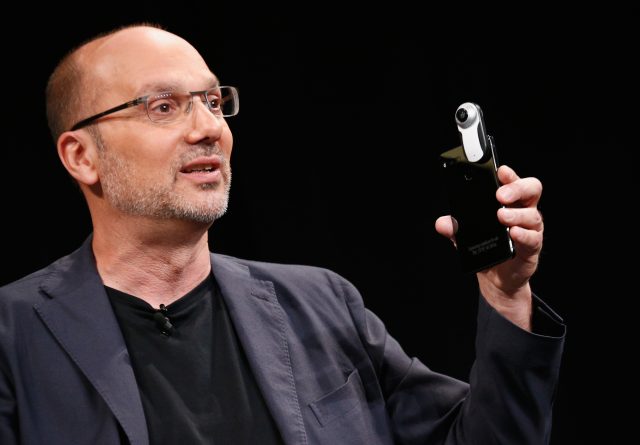IMMINENTI MORTE —
begin quote from:
https://arstechnica.com/information-technology/2019/01/theyre-dead-to-us-the-ars-technica-2018-deathwatch/
They’re dead to us: The Ars Technica 2019 Deathwatch
Companies, tech, and trends least likely to succeed in 2019, as chosen by Ars editors.

Enlarge / No one wants to celebrate a company going away, though these organizations certainly seem to be on a tenuous track.
Picture Post / Getty Images
It’s come to this again: 2018 has passed, making the dumpster fire that was 2017 look a bit more like the glory days. Last year ended with the government partially shut down and the market in a deep slide. Tech companies seemed out to outdo each other as cautionary tales, with some of 2017’s biggest losers extending their death rolls and some of the biggest players in the industry seeming to deliberately set themselves on fire.
So, once again it’s time to call out the Deathwatch. If you’re stumbling across Ars’ Deathwatch for the first time, this is not a prediction of the actual demise of companies or technologies. It takes a lot to actually erase a company or a technology from the face of the Earth these days. Even the worst ideas and businesses often linger on through inertia or get absorbed by some other company and metastasize in new and horrific ways—for example, Yahoo. (We’ll get to them soon enough.)
Instead, Deathwatch is our annual way of identifying those entities facing a different sort of danger: economic, cultural, or legal peril that could render a company irrelevant, inconsequential, or (in some cases) chum for legal and market sharks. Some organizations that have been put on Deathwatch have died a thousand deaths—take RadioShack, for example (a 2014 Deathwatch alumnus... which died a second time after a 2017 reboot). Others, such as BlackBerry, have persisted but have changed so much that they are no longer recognizable as the entities they once were. And then there are others that have so much runway in their death spiral that they could persist as a cautionary tale for decades to come.
To be a candidate for the Deathwatch, a company or product division of a company should have experienced at least one of the following:
- An extended period of lost market share in their particular category
- An extended period of financial losses or a pattern of annual losses
- Serious management, legal, or regulatory problems that raise questions about the business model or long-term strategy of the company or product line
Last year’s class has a high survival rate (for now). Faraday Future was looking like a dead car company walking before reaching a new investor agreement. Management changes at Uber have kept the company driving despite leaping into other markets—but it now faces a whole host of new competition in every segment, on top of its problems with its driverless car business. Twitter became profitable somehow (at least on paper) in 2018, despite the bad press the company garnered over Twitter being the favorite platform of government-sponsored information operations worldwide.
A few honorees remain on life support, however. SoundCloud has been treading water since it nearly ran out of cash in 2017, and it’s not clear what the survival strategy is for the company. HTC somehow also managed to eke out a profitable quarter in 2018—just one, mostly thanks to a cash infusion from a partial acquisition by Google. But that acquisition basically handed Google most of HTC's cell phone operations, so we’re counting HTC out for this year. LeEco, the company previously managed by Faraday Futures’ CEO, is also looking like roadkill in the US. Much of its operations have shut down as the company explores ways to recover.
We also put network neutrality on the Deathwatch last year. No matter how much the Internet mourns, it’s dead. It probably won’t be back any time soon.
With that, let’s move on to this year’s... winners.

Enlarge / Mark Zuckerberg got quite familiar with hearings and politicians within the last year.
Getty Images
Facebook management
Last year, we left Facebook off our list for a number of reasons, starting with its insane profitability. While some readers called Facebook a “bubble,” it was clear that Facebook is the Internet’s version of “too big to fail”: deep pockets, well-entrenched, semi-diversified (with the acquisitions of Instagram and WhatsApp), and billions of users. Little Twitter may finally be profitable, but TWTR’s most recent quarterly earnings are a mere five percent of Facebook’s.
And yet, here we are, putting Facebook on Deathwatch. The reasons have only a little bit to do with financials. We don’t expect that Facebook will go away, but this year is going to probably determine whether Facebook’s management team will continue as it is—or whether there’s a stockholder rebellion, or a government lawsuit, or some combination of both that drives CEO Mark Zuckerberg and others out
Facebook is in crisis, thanks to a stream of what some might refer to by the technical term “really bad management decisions” moves made by the company over the past six years to accelerate the company’s growth while skirting the limits placed by a settlement reached with the FTC over privacy issues finalized in 2012. The Cambridge Analytica “data breach” scandal, other privacy concerns, fake news, and Russian troll ops blowback created a perfect storm that left Zuckerberg looking like a deer in the headlights in front of a series of US congressional hearings (and his subsequent refusal to testify before legislators in seven other countries).
Piled upon that were further privacy revelations, including discoveries of Facebook’s collection of user phone call history and SMS data on Android devices. There was also an advertiser and content provider revolt over Facebook’s apparent exaggeration of video view counts. And despite efforts to reduce hate speech on its platforms, there were people literally getting killed over WhatsApp fake news in India and by hate speech campaigns on Facebook in Myanmar.
So while Facebook is not going to suddenly disappear off the face of the Internet (as much as many people seem to want it to), 2019 is going to be a make-or-break year for the company. While economic forces may not force changes in the company, legislation and courts might very well make business as it has been impossible—especially as the ramp-up for the 2020 elections begins.
—Sean Gallagher
—Sean Gallagher

Enlarge / The Web's iconic little yellow being may be drowning a bit in 2019.
Oath breaking: Verizon's AOL/Yahoo Frankenstein
Yahoo made it onto our Deathwatch in 2016 and 2017, then it was subsequently purchased in June 2017 by Verizon. The move combined Yahoo and AOL into a new subsidiary called "Oath."
Despite the presence of two former Web giants, Verizon's Oath has been a big failure. Verizon announced in December 2018 that it was taking a $4.6 billion non-cash goodwill impairment charge for Oath, wiping out nearly all of Oath's goodwill value.
Verizon explained that Oath "has experienced increased competitive and market pressures throughout 2018 that have resulted in lower-than-expected revenues and earnings." The outlook for 2019 doesn't look any better.
Verizon wanted to become an online advertising and media powerhouse to complement its wireless and wired telecommunications businesses. But it has already given up on an attempt at a video streaming service, and Oath hasn't made up any ground in the ad market dominated by Google and Facebook.
"These pressures are expected to continue and have resulted in a loss of market positioning to our competitors in the digital advertising business," Verizon said.
Besides that, Verizon is also reducing its company-wide head count by 10,400 through voluntary buyouts. We'd expect that plenty of those departures will come from the Yahoo and AOL ranks.
—Jon Brodkin
—Jon Brodkin
JUMP TO ENDPAGE 1 OF 2

Oh, Snap
Last year, Snap was at the top of our reader selections for Deathwatch additions. This year, the company that its executives describe as a “camera company” is in such dire straits that, as CNBC’s stock hypster Jim Cramer said, “I don’t even know what to say about Snap—it’s that bad.” Bad corporate leadership, a very questionable business model, and horrific finances have led to the company losing over half its value.
When I explained why we hadn’t included Snap in our choices last year, I wrote, “When my teenage daughter starts using something else, I'll throw Snap on Deathwatch—an event I anticipate will happen sooner rather than later.” She has not yet abandoned Snap—and in fact, she prefers it over other social media. But no matter how much my 17-year-old is using SnapChat, she’s not going to produce enough ad revenue for Snap to turn that around.
Snap has tried a lot of things to get past being a way to sort of share pictures covertly. Snap streaks, Bitmoji, Snap Stories, and a swing away from being a platform for snark and sexting have broadened SnapChat’s appeal. But the Snap glasses never really caught on, and almost all of Snap’s good ideas have been copied (and in some cases improved) by other social media platforms. While Snap is still more popular with the kids than Facebook (well, who isn’t?), that hasn’t been enough to pull the company out of its continued dive toward insolvency. And if everyone limited their kids to 90 minutes of screen time like Snap co-founder and CEO Evan Speigel, Snap would be in deeper trouble.
Snap lost $3.45 billion in its fiscal 2017 and another $1 billion or so in the first three quarters of 2018. When you lose $325 million in a quarter on sales of $297.7 million, and that’s your best quarter in your company’s history, that’s not a good sign no matter what business you’re in—be it social media or cameras. That’s not the sort of thing you can afford to repeat for very long.
Last year, I said that Snap had a long glide slope to turn itself around because of the company’s $2.2 billion in cash and short-term investments as of September 2017—the spoils of Snap’s super-excessive initial public offering. But now nearly half of that war chest is gone. We don’t have Snap’s December balance sheet numbers yet, but the cash and short-term assets value was down to $1.41 billion in September of 2018.
In an effort to get young people to spend even more time glued to SnapChat, Snap launched its own line of “Snap Originals” video content in October. However, it’s not clear how giving the creators of Keeping Up with the Kardashians some of the remaining pile of money to make a docuseries intended for viewing on a smartphone is going to turn around the burn rate.
--Sean Gallagher
--Sean Gallagher

Enlarge / Founder and CEO of Essential Products Andy Rubin speaks onstage at WIRED Business Conference at Spring Studios on June 7, 2017 in New York City.
Essential-ly dead
If any company goes down the tubes in 2019, I'd place a good bet that it will be Essential, a smartphone startup founded by Andy Rubin in 2015. When Rubin—father of Android—left Google to start a smartphone company, venture capitalists naturally lined up to throw money his way. Before the company even launched a single product, Essential was valued at a whopping 1.2 billion dollars. But 15 months after launching that single product, well, welcome to the Deathwatch. The past year has been an absolute freefall for Essential.
Essential's only standalone product is the Essential Phone, which shipped in August 2017 to lukewarm reviews. It was a competently built high-end smartphone with an interesting titanium and ceramic build, a weird modular accessory system, and it was the first phone with a notch cutout for the front camera. As we said in our review, the Essential Phone was actually very impressive for a brand-new company. The phone was too expensive, though. The $700 price tag was on par with other flagship devices at the time, but the Essential phone had poor water resistance, a dim display, and a poor camera. I also suspect that people were hesitant to buy the first smartphone from a brand-new company, and Essential certainly didn't help the initial skepticism when the phone was delayed two months. When ship time finally came, the company also leaked the personal data of its customers. If you're going to spend $700, why not go with a more established brand?
The market was ultimately not impressed with the Essential phone, and the fire sales started almost immediately. Only two months after launch, the phone got a permanent $200 price drop, to $499. November saw deals as low as $399. Eventually, the $700 phone was discounted all the way down to $224, thanks to a mix of poor sales and a lack of consumer confidence in the company.
A poorly selling phone was one thing, but things really started to look bad for Essential in May, when it was announced the company had cancelled the second generation Essential Phone. The first device took such a toll on the company that it was considering selling itself, and suddenly the future of Essential was in doubt. While the phone was dead, in May the company said it was focusing on an upcoming smart home product and operating system. But by October, it announced that it was cutting 30 percent of its staff, and the company was pivoting away from smart home products and would try building a phone again. It will re-sell you a missing headphone jack, though.
Essential's next phone—if the company lasts that long—is supposedly "an AI Phone That Texts People for You" according to Bloomberg. That sounds awful.
On top of all that, Essential's CEO and founder Rubin has been the subject of a major sexual misconduct controversy at Google. According to a report from The New York Times, Google covered up allegations of sexual misconduct while Rubin was at Google, yet the company still gave Rubin a massive exit payout when he left the company. The Times report led to a walkout protest at Google headquarters and at campuses worldwide.
—Ron Amadeo
—Ron Amadeo

Enlarge / Gwyneth Paltrow attends book signing at goop-pop-in@Nordstrom on June 8, 2017 in Los Angeles, California.
Dishonorable mention: Goop
A glop of Goop is circling the drain, ripe for the flush. Gwyneth Paltrow’s chic lifestyle and “contextual commerce” brand is finally in a fatal swirl as its wealthy patrons have smelled the pseudoscience stink and washed their hands of Goop’s poppycock “wellness” products and health “modalities.” Swoooshhhhhh….
Just kidding. As much as we’d love to plop Goop on the 2019 Deathwatch, it is still just on our Deathwatch wish list. Goop is, in fact, thriving.
Paltrow’s Goop has a pungent reputation for peddling foul health claims and products. This includes the dangerous claim that a jade egg ($66) can improve health when jammed up your vagina and that a shot of coffee up your keister can “detox” your system (a searing aspresso enema device, the Implant O’Rama, goes for $135). Paltrow personally endorsed using bee sting therapy, which doctors blamed in the death of a healthy 55-year-old woman earlier this year. Then there’s the less harmful, but equally nonsensical stickers that Goop says can “rebalance the energy frequency in our bodies.”
The noxious health claims and snake-oil-salesman-like tactics have drawn widespread criticism, including from state prosecutors. In September, Goop agreed to pay $145,000 in civil penalties to settle a lawsuit brought by 10 prosecutors in California over “unsubstantiated” health claims. In an October interview with the BBC, Paltrow emphasized that Goop didn’t admit wrongdoing, but she said they are “learning on the job” about making spurious health claims. She denied promoting pseudoscience, though, and criticized doctors who don’t “believe” in unproven therapies.
Despite all this, Goop is spewing success. The brand reports that its revenue tripled in the last two years, and its valuation reached $250 million this year. There are now stores in Los Angeles, New York, and London, with more planned in Europe and Australia, according to a recent Wall Street Journal article. There’s even a rumor that Goop is in talks with Netflix for a goopy series. Paltrow even flirted with publishing a Goop magazine with Condé Nast this year, but the plan reportedly went down the drain over Condé Nast’s insistence that they fact check content (disclaimer: Condé Nast is the parent company of Ars, whew).
With all the success, Paltrow is unscathed by critics. In the WSJ article, she said she was happy to take potshots in order to empower her customers. She also proudly proclaimed herself founder of the potent wellness industry, adding:
“…I went to do a yoga class in LA recently and the 22-year-old girl behind the counter was like, ‘Have you ever done yoga before?’ And literally I turned to my friend, and I was like, ‘You have this job because I’ve done yoga before.’”
We’ll cross our fingers that Goop makes the Deathwatch next year.
—Beth Mole
—Beth Mole
Your turn
We're sure we've missed a few surefire candidates this year (paging Tumblr, how's that adult content ban going?). Given how volatile the economy, the tech marketplace, and all that are, many companies are facing significant hazards this year. Even Apple has taken a hit because of the trade impasse with China, and the impact of tariffs and market uncertainty will undoubtedly humble more than a handful of Internet and tech companies in 2019.
Speaking of tariffs, it will only get harder to keep politics out of this. With a divided Congress, a government partially shut down, and the chaos monkeys in full swing, things are not going to get better in the immediate future. Qualcomm, a Deathwatch candidate, had to abandon an acquisition because of the trade war (probably because of the US' pursuit of Huawei). The European Union's General Data Protection Regulation actually forced a couple of companies to either change their businesses or (as in the case of Klout) shutter.
So, because the Ars readership is occasionally wise, we'll end our list as we do every year—by asking you for your Deathwatch picks. Justify your choices in the comments below, and we'll revisit the top up-vote getters later this week. Happy schadenfreuding.
No comments:
Post a Comment